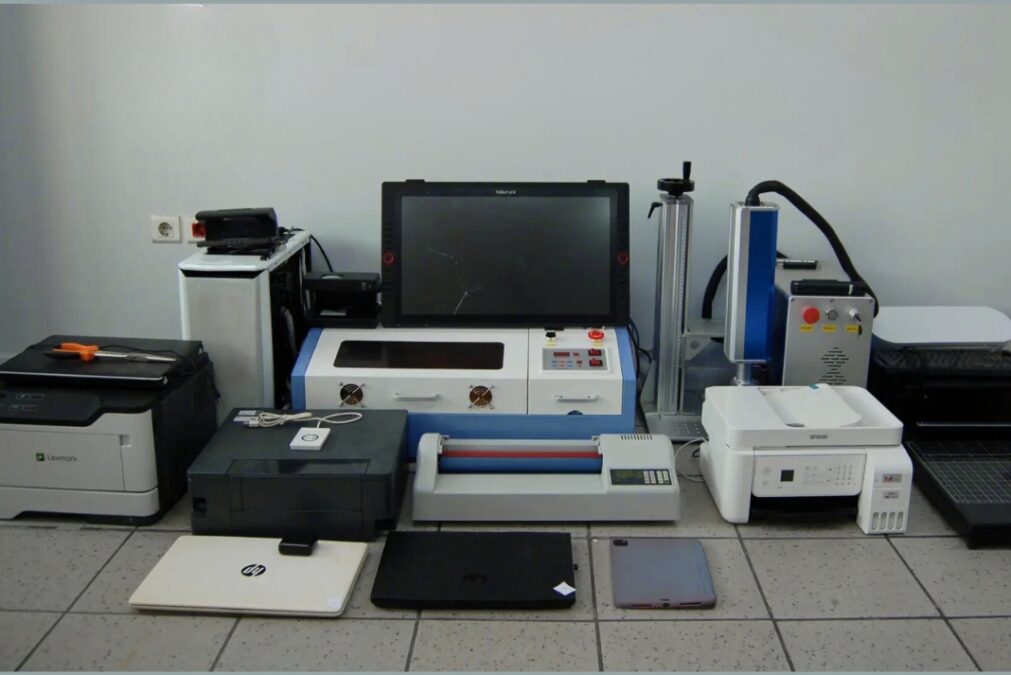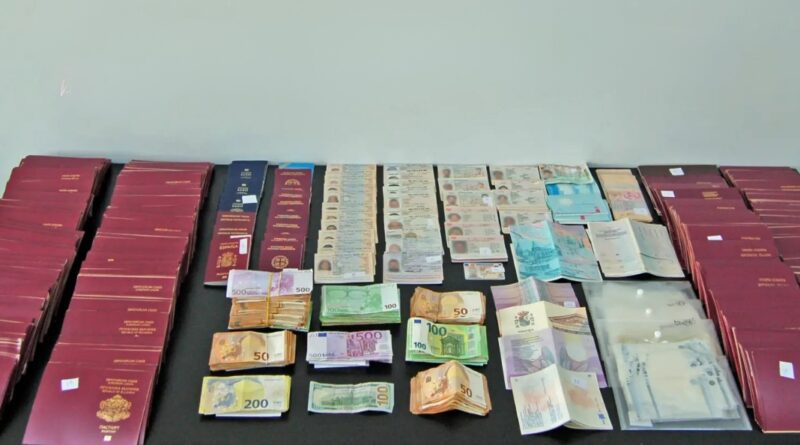Smuggled Migrants into Greece Uncovered by Police
Athens, Greece – Eight persons have been arrested in connection with a complex ring that forged documents and smuggled migrants into Greece. The group was centred in central Athens. The arrests were part of a planned international operation that Greek police carried out with help from Europol. The organisation ran its unlawful business through a fake travel agency, which was really just a way to sell fraudulent ID cards all around Europe.
On July 24 and 25, police arrested the suspects, most of whom were from Pakistan, Iran, and Turkey. Five places were searched, including the travel agency, which had a fully functional forgery lab with high-end laser printers, biometric data sets, and hundreds of fake passports, ID cards, and residency permits. Police seized more than €68,000 in cash, cars, cell phones, and drugs.


Officials said that the bogus travel agency was the centre of a well-planned scheme with specific duties for everyone. Members utilised fake names to send fake documents to customers in a number of EU and non-EU countries. These packages went to places including France, Spain, and the UK. Clients may choose from a list of fake documents, such as passports, driver’s licences, and residence cards. This was a big threat to border security in Europe.
A source who was involved in the enquiry said, “This was not a small-time operation.” “It was a streamlined system that took advantage of flaws in border controls to make it easier for people to move illegally across Europe.”
The network not only produced fake documents, but it also smuggled people from Turkey to Greece. Investigators found a safe house in Athens where people who were not legally in the country were kept and then flown to other countries using fake documents. During the operation, two migrants, one from Iran and one from Afghanistan, were located there. They were going to be smuggled to Portugal.
The Greek-led investigation gathered steam when it was linked to a German investigation that was already going on. Europol was in charge of coordinating things. They set up virtual meetings between Greek, German, and US law enforcement agencies and sent an expert to the scene to help in real time during the raids.
The operation is another victory in a growing trend of countries working together to fight organised crime. The Federal Police of Germany, the U.S. Customs and Border Protection, the FBI office in Athens, and the U.S. Homeland Security Investigations all took part.
A Europol representative said, “This case shows how criminal networks change to hide illegal activities behind real businesses.” “We can only stay ahead of these changing threats by working together.“
